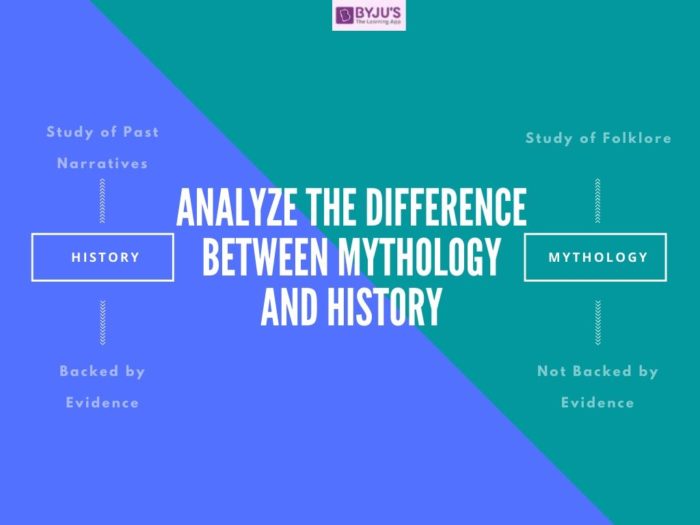Mythology and History appear to be complete opposites at a cursory glance yet both share the trait of narrating human endeavours at different points in history.
Mythology is the study of human myths in general or a collection of myths surrounding one particular topic. Myths are a genre of folklore containing narratives that play a role in society
History is a broad term that relates to past events as well as the memory, discovery, collection, organization, presentation, and interpretation of information about these events.
*History is an optional subject both in the UPSC Prelims and Mains segment of the exam.

This article will highlight the key differences between Mythology and History for the IAS Exam
The difference between History and Mythology is given in the table below:
Differences between Mythology and History
| Mythology |
History |
| Mythology may either refer to the study of myths in general or a body of myths | History is a study of past events that narrate an important event or about real people who lived during a specified time period. |
| The main character of Myths are usually gods, demigods or supernatural human beings | History is about real individuals who have lived in the past |
| Mythology will find its uses in a variety of academic fields such as psychology, anthropology and folklore studies | History uses academic disciplines to study, analyze and question a sequence of past events |
| Mythology is not supported by any evidence, physical or otherwise, to support the narratives studied | History is backed by many pieces of evidence. Along with written accounts, oral accounts and material objects such as pottery are used to back up its narratives |
Areas of Study include:
|
Areas of Study include:
|
| Examples of this can the Odyssey, written by the Homer (Birth and Death date unknown but he is believed to have lived somewhere around 1750 BC) | Julius Ceaser’s Conquest of Gaul is a historical narrative written in the third person recounting Ceasar’s campaigns in Gaul (Modern-day France) |
Aspirants can find study materials related to the History segment of the UPSC Exams through the links given below:
- NCERT Ancient Indian History Notes for UPSC
- NCERT Medieval Indian History Notes for UPSC
- NCERT Modern Indian History Notes for UPSC
- World History for UPSC Mains
- How to Study and Prepare for History in the UPSC Exams
- UPSC History Syllabus
Candidates can find the general pattern of the UPSC Exams by visiting the UPSC Syllabus page. For more articles and exam-related preparation materials, refer to the links given in the table below:
Difference Between History and Mythology – Download PDF Here
Frequently Asked Questions about History and Mythology
What is the relation between Mythology and History?
What are the 4 types of myths?
Related Links

Comments